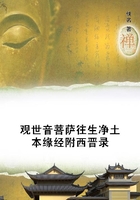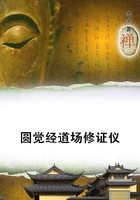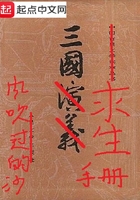In the winter of 1851 the nobility of Petersburg, not wishing to remain behind that of Lithuania, presented to the Emperor an address very like the one just mentioned. This address and the decree it provoked deserve to be mentioned, for they show, on one hand, the desire of the aristocracy to preserve not only all the advantages of a land-owning class, but also to a certain extent the social dependence under which the peasant had lived towards them during the preceding centuries; and, on the other hand, the firm decision of the Government to secure to the peasant at least his property in the homestead he occupied, and in the land which surrounded it. The decree is curious too as a precise statement of the conditions on which the Government intended at first to accomplish the difficult task of emancipation. They are, as you will soon perceive, very different from those on which the emancipation was actually performed. No question is made of the direct interference of the State in order to buy back from the nobleman the plots of ground occupied by the serfs. This end is to be alone attained by way of free agreement between the parties. As long as this agreement has not taken place the serf is to continue to perform the agricultural labour and make the money payments fixed by law. The nobleman, on the other hand, exercises, as in the past, a kind of feudal justice and police.
The ground of the whole manor is declared to be his property; the peasant is to receive no other endowment but that of his homestead.
The nobility of Nijni-Novgorod, that of Moscow, and of several other provinces, soon after this presented demands not very unlike those already mentioned. They were answered in the same way, and local committees, imposed of noblemen, were accordingly formed, in order to elaborate the outlines of the intended reform in accordance with the views of the Government as already stated. These outlines were to be sent for further examination to a central board, which was first appointed on January 8, 1858, and was known under the name of the "Principal Committee on the Peasant Question." They were also to be the subject of careful study on the part of a newly opened section of the Board of Statistics. Men of radical ideas, such as Nicolas Miliutine and Soloviev, were included among its members. The reactionary party, on the other hand, counted more than one member in the "Principal Committee on the Peasant Question", a fact which induced the Government to detach from this Committee two especial sections, the so-called "Committee for the Drawing-up of the Reform Project," and that of "The Elaboration of Financial Measures, needed to secure the Execution of the Plan in View." The guidance of both Committees and the election of their members were entrusted to General Rostovzov, an avowed friend of the intended reform. An important change was introduced into the working of the bureaucratic machinery by the fact that some elected members of the provincial committees were allowed to have a seat at the meetings of the central bodies, and to exercise there the functions of experts. Among the persons so appointed we find several well-known Slavophiles, such as Samarin and Tcherkasky.
The work the central committees had to perform was, first of all, the drawing-up of a concise statement of the results attained by the deliberations of the local committees; next, the discussion of the different opinions which these latter had expressed; and, finally, the drawing-up of the conclusions to which the members of the central committees themselves had arrived. The members of the committees enjoyed the hitherto unknown freedom of expressing their opinion, and of consulting all sorts of papers and books, not excluding even those published by Russian emigrants. One of the members protesting against the idea of drawing information from the Kolokol, a Russian newspaper published in London by the political refugee Herzen, the President said that, according to his opinion, truth was to be taken into account, whoever might have expressed it. The formalism and official subordination so much observed by our bureaucracy were for the first time laid aside, and each member frankly expressed his views, however much they might be opposed to those of the President. The committee even went so far as to accept on certain points decisions which were not in accordance with the Imperial decrees. The local committee appointed by the nobility of Tver was the first to express the opinion that the peasants ought to be endowed with land beyond that which surrounded their homesteads. This opinion was endorsed by the central committee, which maintained that, although it was contradictory to the letter of the Imperial decrees, it was in perfect correspondence with their spirit.
On another occasion the "Committee for the Drawing-up of the Scheme of Reform" showed the same independence by adopting the view first put forward by members of the press, that it was necessary that the Government should come forward to buy up the land which the nobleman was called upon to surrender to the peasants of his manor. Now this view was quite the reverse of that expressed by the Imperial decrees we have previously cited.
In the whole of the movement the large and important part played by the public press is most striking. No doubt can be entertained that at its beginning the officials to whom was entrusted the elaboration of the plan were profoundly ignorant of the bearings of the question. The President of the Committee, General Rostovzov, frankly acknowledged this ignorance, and in his private correspondence with the Czar betrayed his fears of a national bankruptcy as the certain result of the Government taking on itself the redemption of the lands which were to be ceded to the peasants -- fears which seem almost ludicrous now that this redemption has been effected, and the financial interests of the State have not suffered even for a moment.















